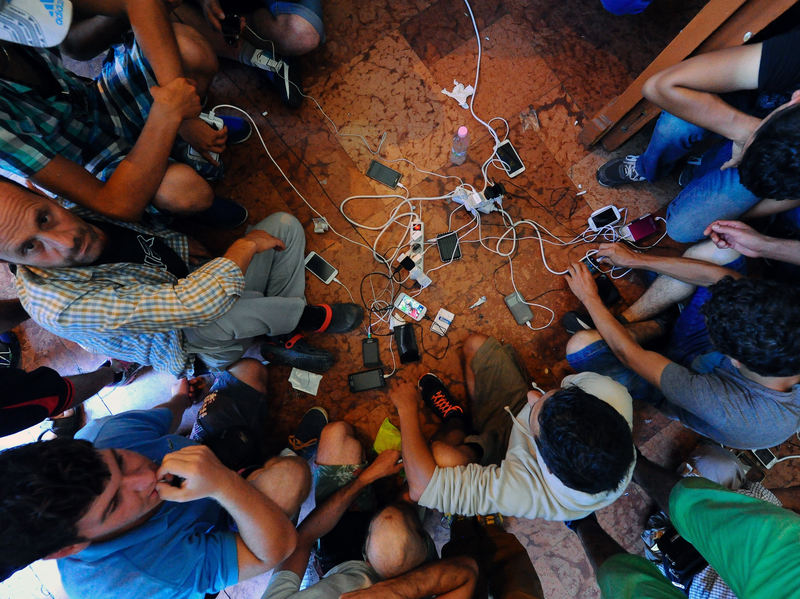by James Smith
The Department of War Studies at King’s College London is home to the Laughton Unit. The Laughton Unit educates and researches in the field of naval history and maritime strategy. This is to support and shape the evolution of naval history as a tool across a broad spectrum of disciplines and debates on the world around us. The Laughton Unit provides the ideal basis for original and challenging research on all aspects of naval history, sea power studies and strategy, preparing the next generation of thinkers from all around the world, ready and able, for a spectrum of career possibilities and destinations by understanding the sea is the global commons in which nations and events interface and interact.
Under the guidance of the first Laughton Professor of Naval History, Professor Andrew Lambert, the unit delivers researchers, scholars, and thinkers whose output impacts a broad spectrum of debates, organisations, governments, industries and the military around the world. These researchers as civilians, prior or current armed services personnel have researched a range of topics, questions, and fields with the scholarly skills and knowledge, they have developed in the unit. This is ranges from Bachelor level, Masters certification, and Doctorates. Research ranges from the 8th Century BCE through to the questions of today and tomorrow where ‘maritime’ is often forgotten.
How inappropriate to call this planet Earth when clearly it is Ocean – Arthur C Clarke.
Over a century ago Sir John Knox Laughton and Sir Julian Corbett were visionaries similar to Carl von Clausewitz or Antoine Henri De Jomni who understood that it was crucial for making sound contemporary strategy to lay in a sophisticated, rigorous methodology of studying history coupled with the strategic theory. Laughton encouraged that to understand strategy, recovering the useful past that included understanding the interaction of maritime and land was essential to understanding past historical lines of inquiry for current and future questions. These thinkers found insight through the sustained application of studying the past. The Laughton Chair reminds students of history and strategy: ‘Only when they had assembled a substantial body of historical research did they begin to develop coherent national doctrine, and they did so by engaging with the best contemporary theoretical models.’
The spirit of Laughton and Corbett remain active in the research unit where the sustained methodological study of naval history and maritime strategy is central to answering questions of the past while also, should the researcher ask questions about the future, to develop contemporary strategic thought to address current and future challenges.
This spirit was demonstrated under a partnership between the Laughton Unit with the Naval War College earlier in 2019. Projects such as the Corbett 100 focuses on the task of reminding contemporary strategic thinkers about the underlying foundations of history, which may be applied for the purposes of informing both future strategic thought and maritime strategy in both peace and war.
Although such luminaries as Sir John Knox Laughton whom the unit is named after and other notable individuals such as Spenser Wilkinson influenced the ideas of U.S. Navy admirals Stephen B. Luce and American naval historian Alfred Thayer Mahan, the works of British historian Sir Julian Corbett, in particular, influenced the ideas of American Admiral William S. Sims and British Admiral ‘Jackie Fisher’ and some of those who went on to win decisively in the Second World War. As reflected in the curriculum at the U.S Naval War College of the interwar period, Corbett helped fuel the notion of using navies as a means to first avert the prospect of war and, secondarily, to secure decisive results in war for re-establishing the conditions for a sustainable peacetime end-state objective.
Today, the Laughton is one of the world’s oldest naval history and maritime strategy research groups. It runs one of Britain’s longest-running maritime seminars, which events can be found most the year-round on the departments web pages, while a broad set of researchers from around the world covering a range of topics in naval history and strategic studies names can be found regularly on new book releases and papers. Their research demonstrates the interaction between the sea and our often-rigid land-dwelling views of the world, reminding us that ‘maritime’ remains as relevant today as ever before. Research covers topics from social, cultural issues, history, warfare, professional and organisational development through to wargaming, defence policy, tactics, operations and even strategic space theory.
Want to learn more? Read: 21st Century Corbett: Maritime Strategy and Naval Policy for the Modern Era. Edited by Andrew Lambert
Or visit www.laughtonunit.com
James W. E. Smith is a PhD researcher in the School of Security Studies, Department Of War Studies, Kings College London. James is a member of the Laughton Naval Unit and an associate member of Kings College London’s Centre for Grand Strategy. He was recently the Edward S. Miller Research Fellow at the U.S. Naval War College. In 2016 he founded the King’s Naval Wargaming Research Group and later the Maritime and Space Research Network. He helped found the King’s Wargaming Network in 2018 and is Co-Director of ‘Corbett 100,’ which marks the centenary of the death of Sir Julian Corbett [1854-1922].
